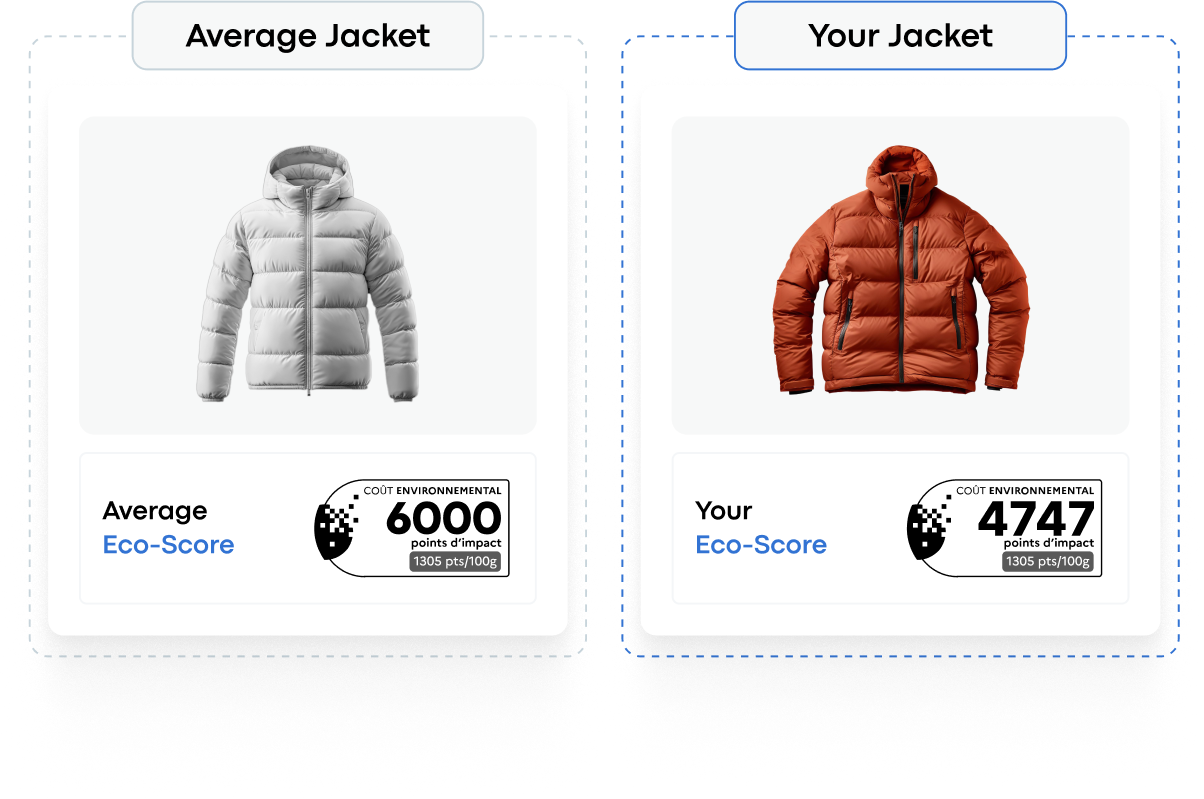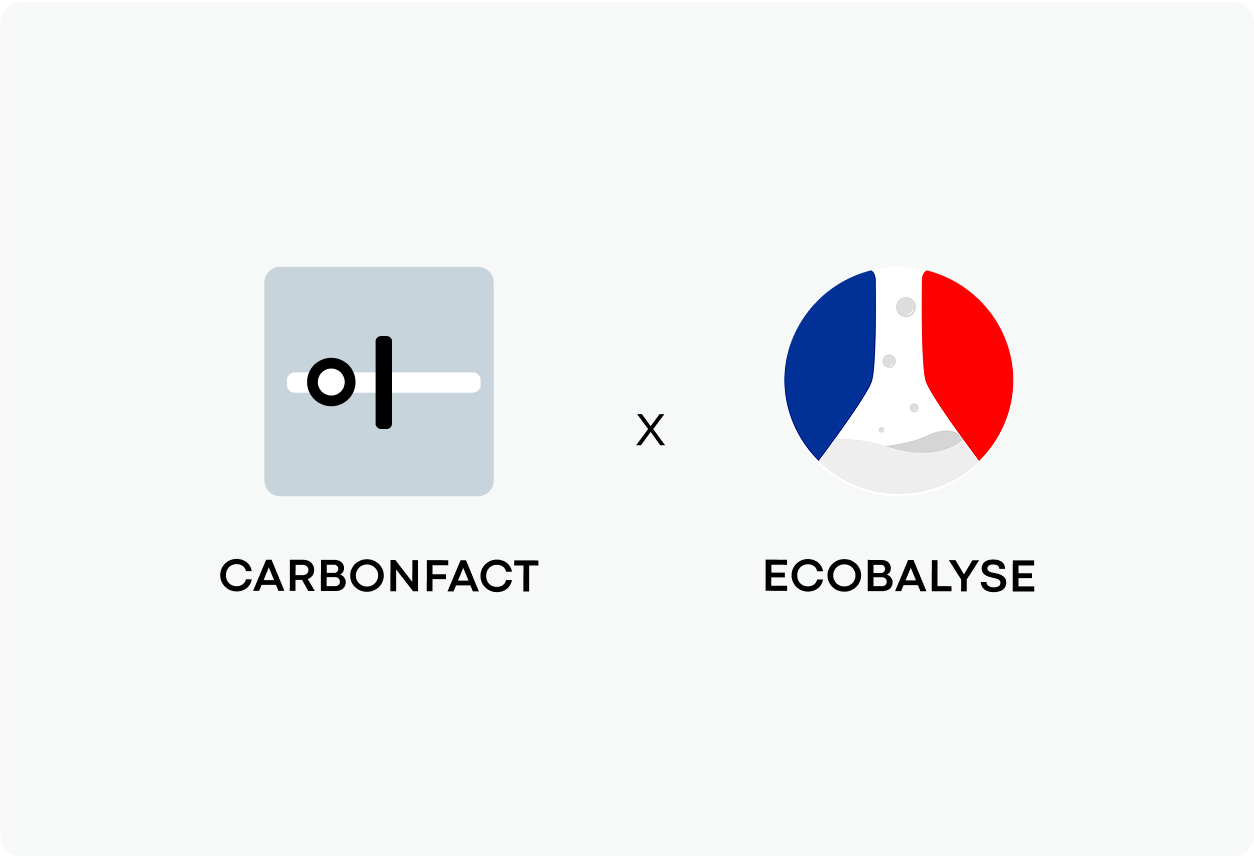Environmental data platform - built for apparel and footwear brands, and their suppliers.
Benchmark your Textile Eco-Score
Measure your French Eco-Score and see how your products compare to real industry data

How is your Eco-Score Benchmark calculated?
Carbonfact calculates your Eco-Score using the official French Ecobalyse methodology and then benchmarks it against hundreds of product scenarios per category (e.g. T-shirts, jeans, outerwear) using real-world data from Carbonfact’s database and the official Ecobalyse database. This creates a realistic distribution of scores that your product can be compared against.

Frequently Asked Questions
What is Carbonfact?
Carbonfact
is a Product LCA and Carbon Accounting platform built for apparel and footwear brands and suppliers. In the context of the French Eco-Score, Carbonfact automatically calculates and exports Environmental Costs for your entire product catalogue. Benchmark your score, simulate improvements and automatically declare to the French portal – all from one central source.
You can read more about our Eco-Score features here
What methodology do you use?
We use the official PEF (Product Environmental Footprint) methodology developed by the European Commission. Eco-Score results are calculated using the Ecobalyse database and API, which is the government-mandated engine for environmental labeling in France.
Read more about our LCA methodology here
How is the Eco-Score Benchmark calculated?
We collected data on thousands of textile products from our database — including typical materials, weights, and manufacturing countries for each production stage. From this, we built representative product scenarios and assigned probabilities based on how often they occur in real data. Each scenario was then scored via the Ecobalyse API, and the results were weighted to create a realistic distribution of Eco-Scores for every product category.
Will this tool publish my score publicly?
No. The product data you enter, your benchmark and eco-score is 100% confidential, and we don’t save it. The benchmark tool is private and exploratory. You can test different scenarios and see where your product stands without publishing anything.
What is the French Textile Eco-Score?
The French Textile Eco-Score—also known as Environmental Cost—is an environmental label that rates the environmental impact of clothing across its full lifecycle. It’s calculated through Ecobalyse, the official methodology and platform provided by the French government.
The score covers 16 environmental indicators like climate change, water use, durability and microplastic pollution. While the label is voluntary for brands, starting in 2026 third parties (e.g. marketplaces, NGOs or journalists) will be allowed to publish your product’s score—even if you haven’t calculated it yourself.
Carbonfact helps you calculate accurate scores at scale using your real supply chain data.
Why should I calculate Eco-Score, even if it’s voluntary?
Starting in 2026, third parties like marketplaces, retailers, or NGOs will be allowed to publish your product’s Environmental Cost—even if you haven’t provided the data yourself.
If you don’t calculate your own score, it will be generated using Ecobalyse’s default assumptions, which are intentionally conservative. That means your products could be scored as if they were made with high-impact materials, flown in by air, and offered with no durability or repair services.
Calculating your own score gives you control over how your brand is evaluated. It lets you:
-
Replace worst-case defaults with accurate, product-specific data
-
Identify where you stand compared to your category average
-
Improve your score before it becomes visible to consumers
-
Avoid reputational risk from misleading scores published by third parties
Who needs to comply?
All apparel brands selling in France will eventually need to comply. Large retailers and platforms are already preparing to display Eco-Scores.
.gif?width=1872&height=1290&name=ezgif.com-animated-gif-maker%20(1).gif)